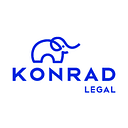Thailand’s Accounting Regulatory Framework in Brief
Foreign investors who are considering to appoint an accountant in Thailand may be delighted to know that Thai Accounting standards follow international standards (IFRS). And the World Bank’s report made on the Observance of Standards and Codes says that Thailand has made a huge progress in the field. Read on to know about the regulatory framework for accounting in Thailand.
Business entities that must keep accounts based on the Thai Accounting Act, B.E. 2543;
· ‘Registered partnerships registered under Thai law,
· Joint Ventures under the Thai Revenue Code,
· Limited Companies registered under Thai law,
· Public Limited Companies registered under Thai law,
· Juristic individuals registered under a foreign law if doing business in Thailand, and,
· Natural Persons or Unregistered Partnerships, carrying on any kind of business in Thailand.’
Section 20 of the Act
According to this section, the above business entities must have;
· a qualified bookkeeper who will be responsible to keep accounts, showing results of the operations, the financial status or any alteration in the financial status based on the accounting standards.
Section 21 of the Act
According to this section the particulars must be in Thai language or if required it must be translated into Thai language.
Sections 9, 10 and 11 of the Act
According to this section a business must prepare and submit all the financial statements within five months from the date the accounts are closed. However, a limited company or a public limited company must do that within one month from the date of the general meeting.
Just so you know the books are closed 12 months after the beginning of the accounting period i.e., the registration date of Thai company or Registered Partnerships or the commencement date of the business operations of Joint Ventures and foreign companies.
Publication Requirements
The companies have to produce a balance sheet as well as a profit and loss account for every accounting year.
